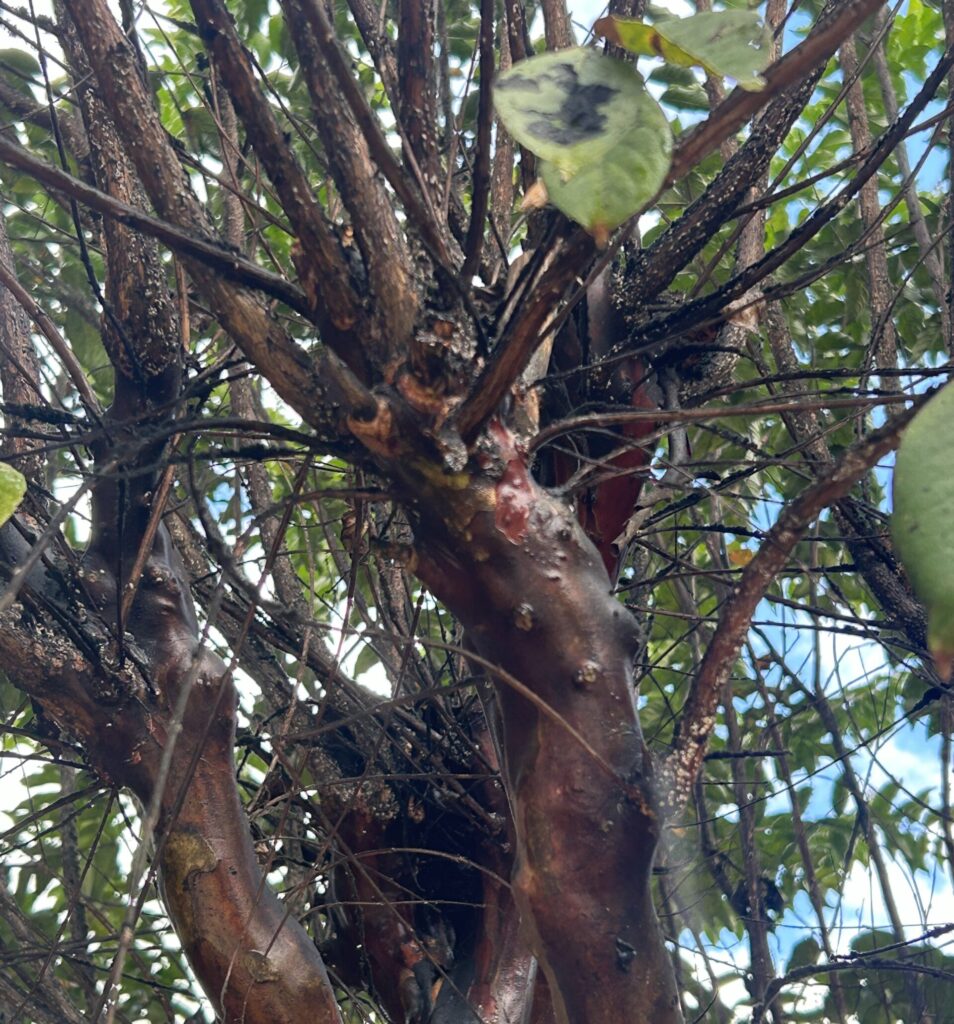
Truetimber provides expert scale insect identification and treatment throughout Richmond and Central Virginia with ISA-Certified Arborists and 27+ years of experience. Scale insects are among the most damaging tree pests in Virginia, feeding on sap and weakening trees over time. Our diagnostic approach identifies the specific scale species affecting your trees and determines root causes rather than simply treating symptoms. Since 1998, our award-winning team has helped homeowners protect their landscapes using sustainable, science-based methods. We take an educational approach to help you understand the problem and make informed decisions about treatment. Schedule your free diagnostic visit today.
We serve Richmond, Midlothian, Chesterfield, Henrico, Powhatan, Mechanicsville, Ashland, Bon Air, Glen Allen, and surrounding Central Virginia communities. In addition to scale treatment, we offer complete plant health care, soil treatments, tree pruning, and comprehensive tree care management to keep your landscape healthy.
Scale insects are small insects that attach themselves to tree branches, leaves, and stems. They feed by sucking sap from the tree, which can weaken the plant over time and lead to bark discoloration, reduced growth and leaf production, and even tree death in severe cases.
Soft scale insects also secrete a liquid, sometimes called honeydew, which will collect on cars, porches, or anything underneath the tree. Honeydew can also attract other insects such as ants. While there are various types of scale insects that produce honeydew, they all share a similar feeding behavior and can damage trees by draining their nutrients and weakening their overall health.
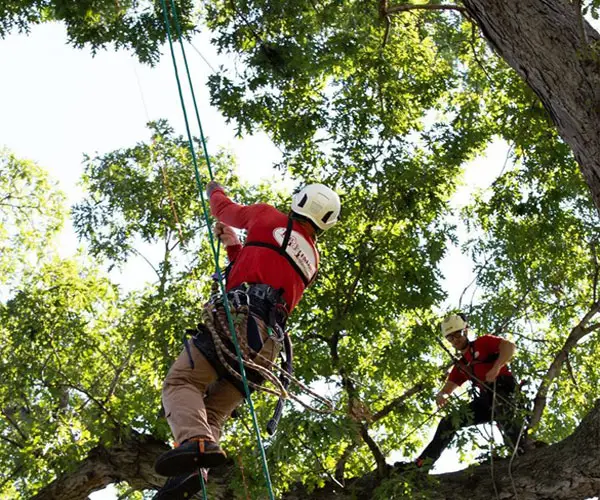
Information Goes Here
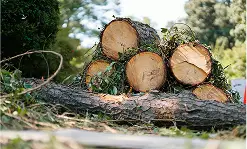
Information Goes Here
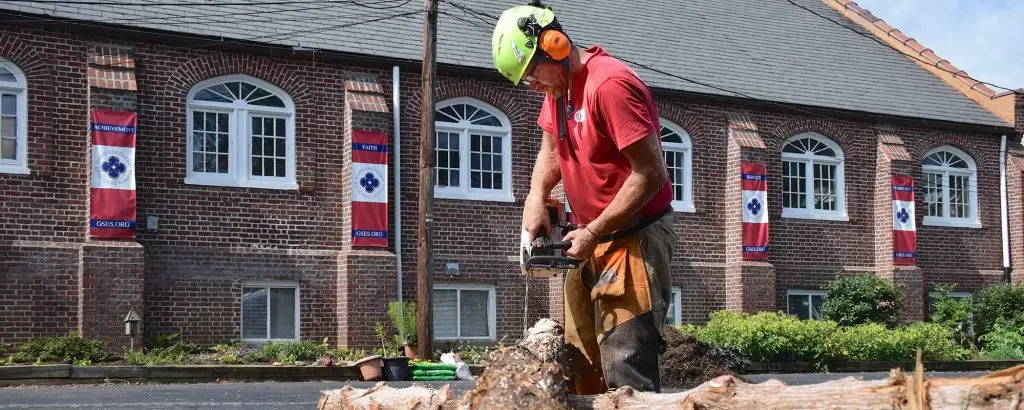
Information Goes Here
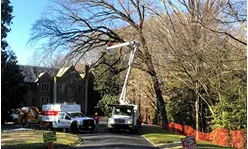
Information Goes Here
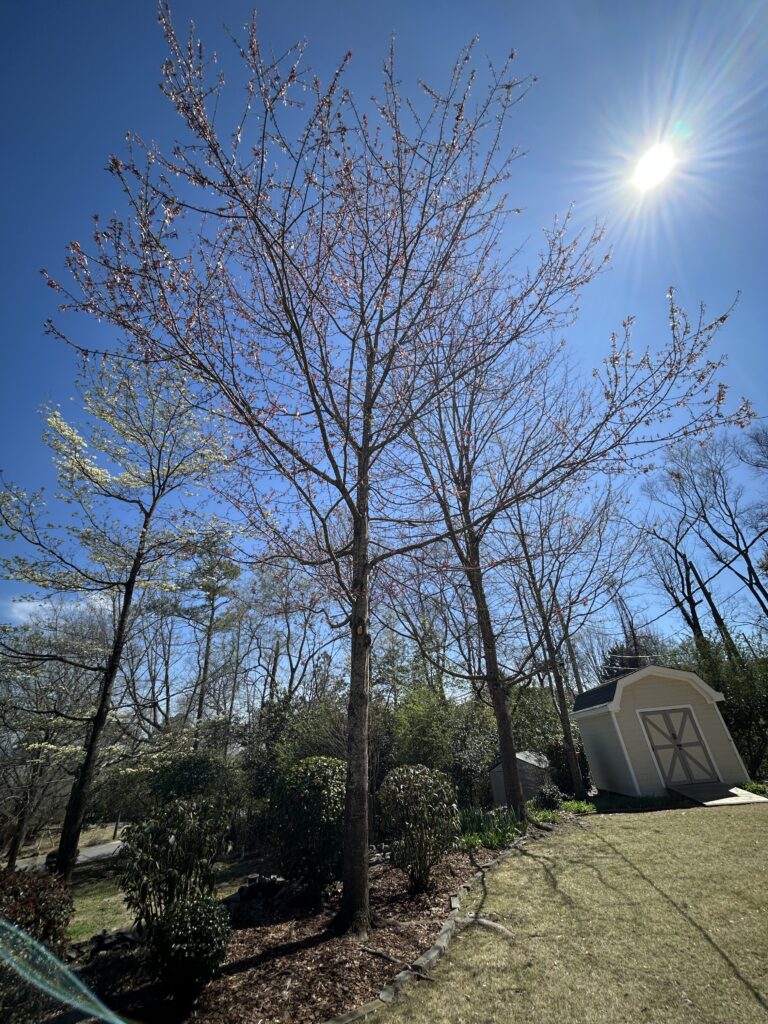
Identifying scale insects on your trees can be tricky because of their small size and protective coverings. However, there are several signs to look for on your trees that can indicate an infestation:
Richmond’s urban landscape hosts several scale species that threaten tree health. Identifying the specific type is essential for effective treatment.
Gloomy Scale is an armored scale that usually affects Box Elders and Red, Silver, or Freeman Maple trees. As an armored scale, it secretes a hard gray covering called a test that acts as camouflage, often causing infestations to go unnoticed until they are severe. Gloomy Scale overwinters in its adult form in their test. In the spring, crawlers emerge and locate new feeding sites. Once they are in a good place, they insert their mouthparts into the bark and feed.
Crape Myrtle Bark Scale are small light-colored insects. They have a felt-like appearance and are one of the soft scales in our area. Unlike the hard scales, their secretions do not turn into hard coverings but rather a sticky liquid called honeydew. This honeydew can attract ants and other insects. Sometimes, the bark scale and the ants will form a symbiotic relationship where the ants protect the scale in return for the sweet honeydew. You may notice a dark discoloration on the bark of affected Crape Myrtles.
White Prunicola Scale is a non-native armored scale. It can be difficult to manage because of its waxy test that helps protect the scale from predators and some types of pesticides. Often it looks like white raised dots on the bark of the affected tree. When left untreated, this scale can cause leaf yellowing and shedding, slowed or stunted growth, and ultimately the death of branches.
Lecanium Scale is another soft scale that is brown in color and may be found on bushes, trees, and shrubs. By the end of the summer, they develop a thin waxy shield. In the Richmond area, they are commonly found on oak trees. They may be high up in the canopy, but you can identify their presence by laying a sheet or tarp under the canopy of a tree and seeing the honeydew produced by the scale fall to the ground.
Scale insects are more than just a nuisance. They can seriously harm your trees. By sucking the tree’s sap, they weaken it and can lead to:
If you suspect a scale infestation on your trees, early action prevents further damage. At Truetimber, we specialize in identifying and treating scale infestations in Richmond and surrounding Central Virginia communities. Our ISA-Certified Arborists use a diagnostic approach that identifies root causes rather than simply treating symptoms.
Here’s how we help:
Scale insects can be a serious threat to the health of your trees, but with early detection and professional treatment, your trees can recover and thrive. If you’ve noticed any signs of scale infestations on your trees in Virginia, don’t wait—contact Truetimber Arborists today for a consultation.
Call us or fill out our online form to schedule an appointment. Our team is here to help protect your trees and keep your landscape healthy and beautiful.
Scale treatment costs depend on the number of affected trees, scale species, infestation severity, and treatment method required. Minor infestations caught early may need only one or two applications, while severe or widespread infestations require more intensive programs. Our ISA-Certified Arborists provide free diagnostic visits with transparent recommendations and pricing tailored to your specific situation.
Timing is critical for effective scale control. The best time to treat most scale insects is during the crawler stage, when young scales are mobile and vulnerable before developing protective coverings. For armored scales like gloomy scale, this typically occurs in late spring. Crape myrtle bark scale crawlers emerge in late spring through early summer. Our arborists monitor crawler activity and time treatments for maximum effectiveness.
Look for sticky honeydew residue on leaves or surfaces beneath the tree, black sooty mold growth, yellowing or dropping leaves, small bumps or waxy coverings on branches and bark, increased ant activity around the tree, and overall decline in tree vigor. Gloomy scale on maples often goes unnoticed until severe because their gray coverings blend with bark. If you notice any of these signs, contact us for a diagnostic visit.
Yes, severe or prolonged scale infestations can kill trees. Scale insects continuously drain nutrients and water from the tree’s vascular system, weakening it over time. Stressed trees become more susceptible to secondary pests and diseases, compounding the damage. Early detection and treatment give trees the best chance of recovery. Our plant health care programs help restore tree vigor after treatment.
Our treatment approach depends on the scale species and infestation severity. Options include horticultural oil applications that smother scales during vulnerable life stages, systemic treatments absorbed by the tree that target feeding insects, and our holistic soil-based programs that improve overall tree health and resilience. We avoid broad-spectrum pesticides that harm beneficial insects and natural predators that help control scale populations.
Trees under stress are more susceptible to scale infestations. Urban and suburban trees face unique stressors including compacted soils, limited root zones, heat stress from pavement, and improper planting depth. Healthy trees with robust root systems and good soil biology are better able to resist pest pressure. Our soil treatment programs address these underlying issues to improve long-term tree health.
Prevention starts with overall tree health. Regular pruning improves air circulation and removes infested branches. Proper watering, mulching, and avoiding soil compaction reduce tree stress. Monitoring your trees regularly helps catch infestations early when treatment is most effective. Our ongoing tree care management programs include regular inspections and proactive care to prevent pest problems.
Yes. Trees severely weakened by scale infestations may develop structural issues as branches die back or growth becomes unbalanced. Our cabling and bracing services provide structural support for trees worth preserving while they recover. Combined with treatment and health care programs, we can often save valuable trees that might otherwise need removal.